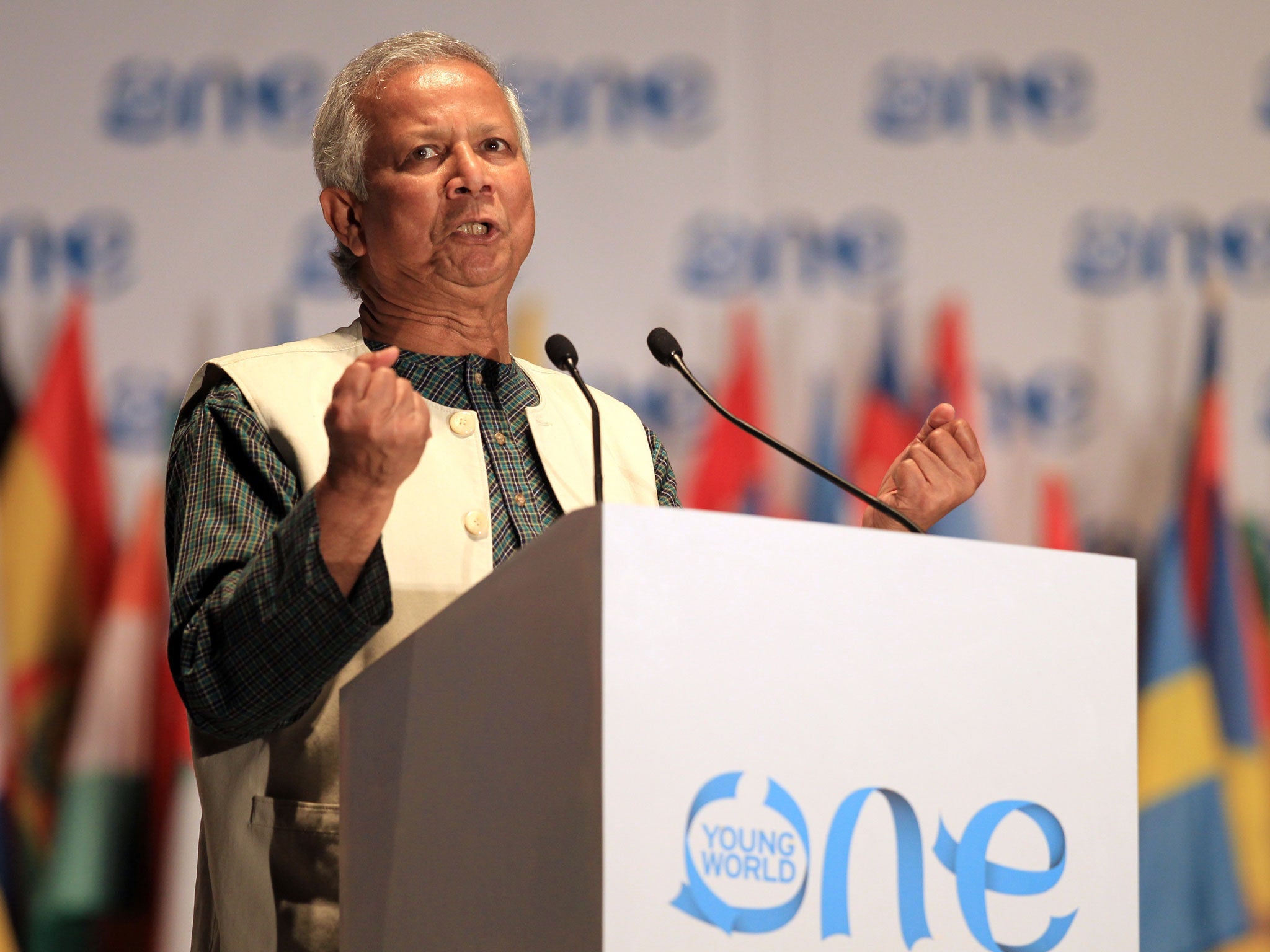
Your support helps us to tell the story
From reproductive rights to climate change to Big Tech, The Independent is on the ground when the story is developing. Whether it's investigating the financials of Elon Musk's pro-Trump PAC or producing our latest documentary, 'The A Word', which shines a light on the American women fighting for reproductive rights, we know how important it is to parse out the facts from the messaging.
At such a critical moment in US history, we need reporters on the ground. Your donation allows us to keep sending journalists to speak to both sides of the story.
The Independent is trusted by Americans across the entire political spectrum. And unlike many other quality news outlets, we choose not to lock Americans out of our reporting and analysis with paywalls. We believe quality journalism should be available to everyone, paid for by those who can afford it.
Your support makes all the difference.Grameen Bank, the Nobel Peace Prize-winning company, inched closer to state control after ministers in Bangladesh approved a draft bill that hands the central bank greater powers to regulate the micro-lender.
At the weekly cabinet meeting of ministers yesterday in Dhaka, which was presided over by Prime Minister Sheikh Hasina, the draft bill was approved.
It proposes increasing the authorised capital of Grameen Bank to £79.9 million up from £27.9 million, and raising the paid-up capital to £24 million from £3.9 million. The lender "will have to report to the Bangladesh Bank from now on," Mohammad Musharraf Hossain Bhuiyan, the cabinet secretary, said yesterday.
Grameen has revolutionised micro-finance in the south-east Asian country by extending loans to about nine million people, mostly women.
Due to its success, the bank’s founder Muhammad Yunus earned a Nobel Peace Prize in 2006.
But Mr Yunus and the government have been at loggerheads in recent years over the running of the bank. Critics say the state is trying to wrest control of the lender from its owner.
Besides other amendments, the proposed law also sets a three-year term for each director of the bank's board, while also limiting their regulation powers, finance ministry officials said.
Tahsina Khatun, a member of the board and director of the micro-lender, accused the government of usurping control of the bank.
She said that "the government has taken away the freedom of the bank” and expressed fears the company may turn out to be like most state-owned banks, which are incurring losses and are rife with corruption.
According to reports, the Bangladesh government moved to change the law to establish its control over the bank after the removal of Nobel laureate Mr Yunus in 2011, who was then managing director.
Mr. Yunus was sacked in 2011 after the High Court ruled he was past the retirement age of 60 in Bangladesh.
Last month, the government accused Mr Yunus of tax evasion on overseas income, something he denies.
Supporters of Mr Yunus maintain the charges levelled against him by the government are politically motivated.
Join our commenting forum
Join thought-provoking conversations, follow other Independent readers and see their replies
Comments